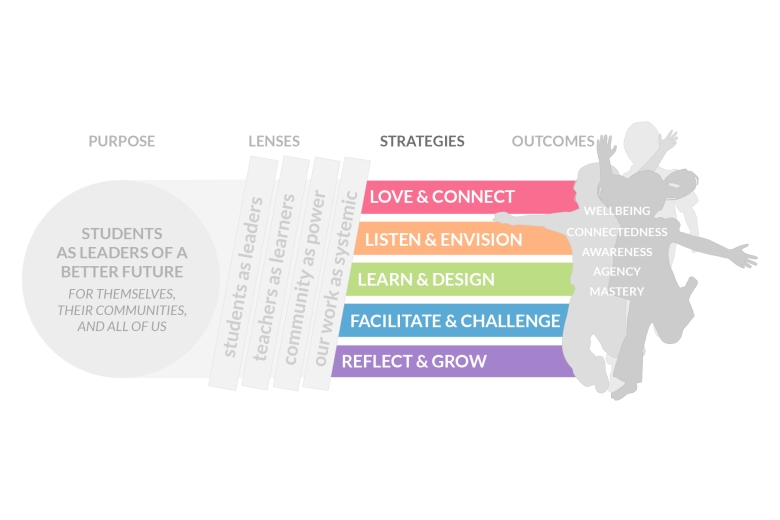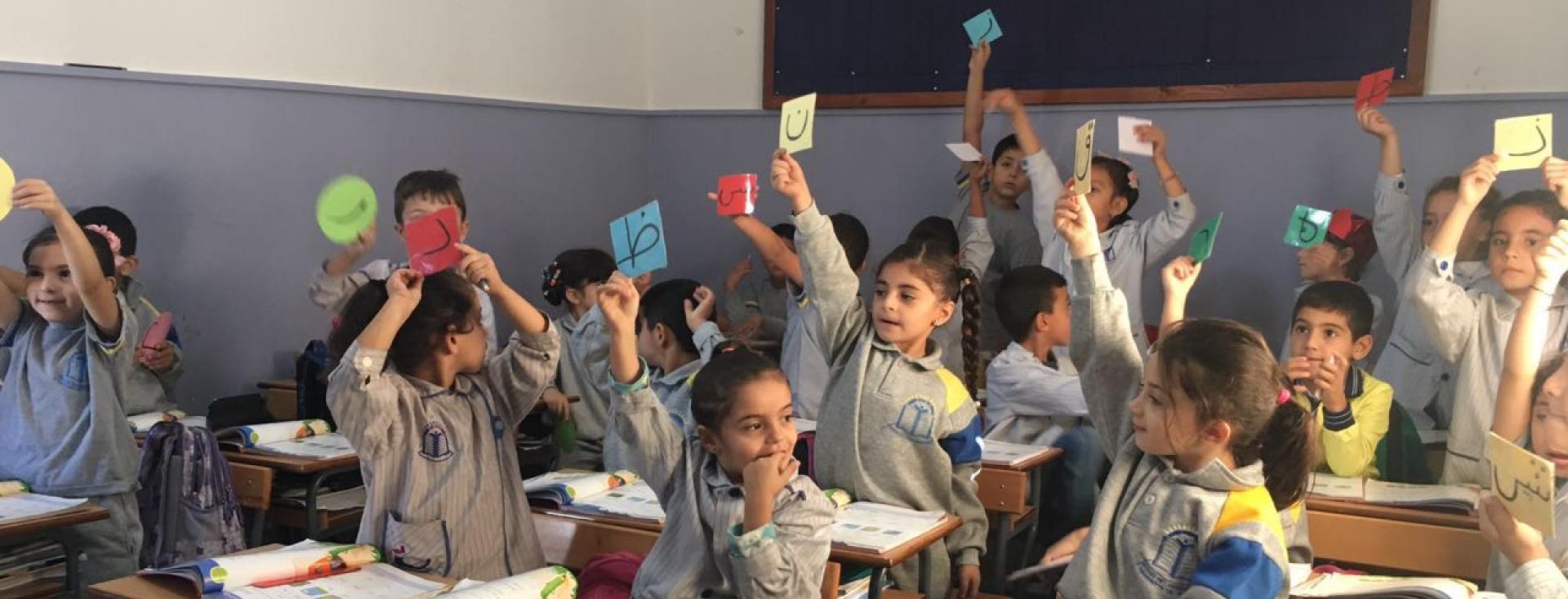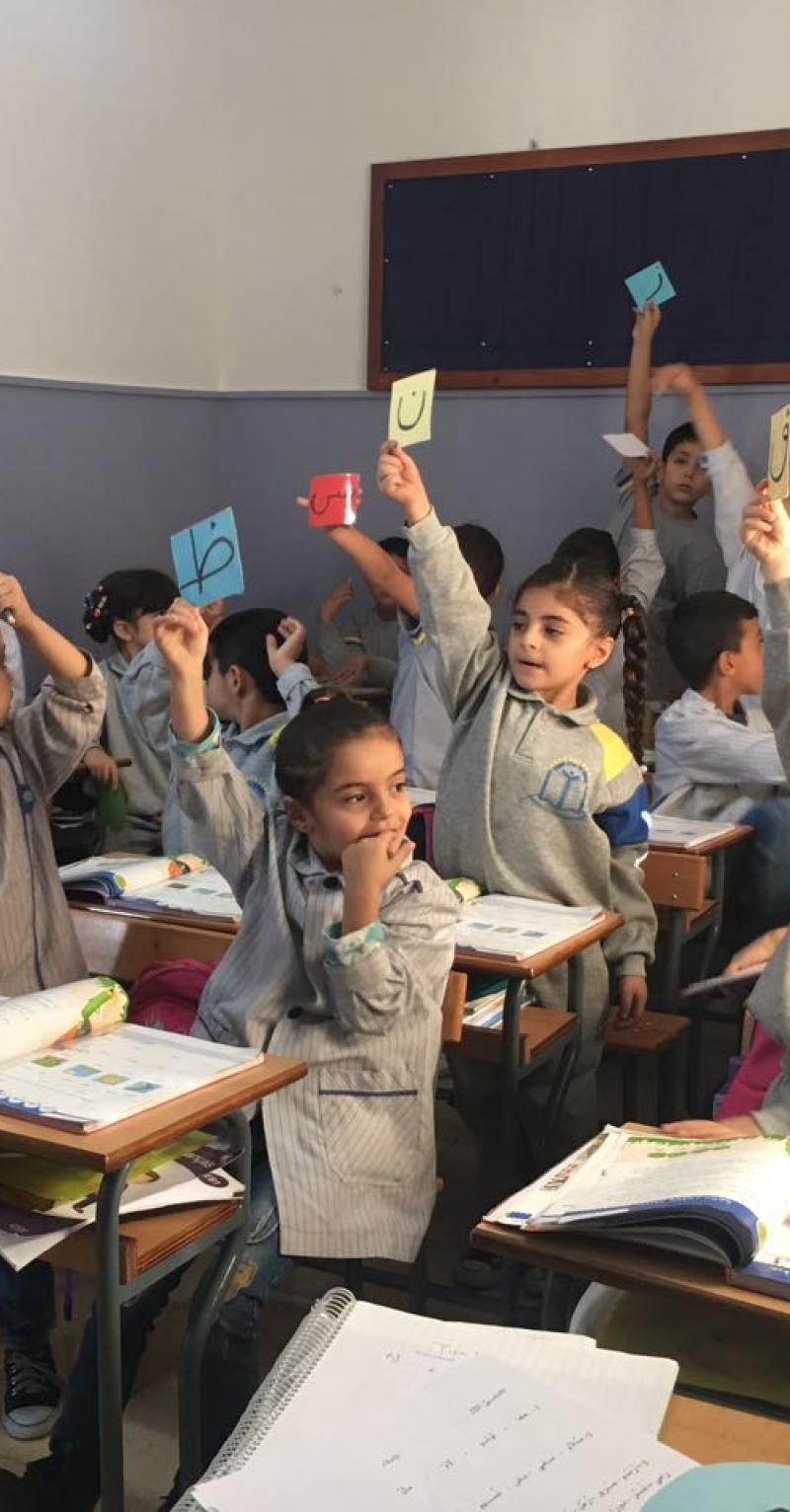Overview
We have identified patterns in the actions teachers take in classrooms where students are growing as leaders of a better future. These transformational classrooms have shown that growing students in this way calls for more relational, student-led, discovery-oriented teaching and learning.

Discover
Check out this compilation of clips from some of the teachers, students, classrooms, schools, and communities that were part of our Global Learning Loops. What do these classrooms have in common? What key strategies do you see?
Learn
Our studies suggest that five families of actions (which we are calling “strategies”) distinguish transformational classrooms. Under each of these, you will observe five specific actions (for a total of 25 actions) often found in these classrooms.
|
Love & Connect |
|
Build relationships |
|
Foster belonging |
|
Nurture culture |
|
Know yourself |
|
Be human |
|
Listen & Envision |
|
Broaden perspectives |
|
Host dialogue & discussion |
|
Partner with families & community |
|
Critically examine history |
|
Collectively envision success |
|
Learn & Design |
|
Build critical knowledge |
|
Plan backwards |
|
Value learner variability & ownership |
|
Expect higher-order thinking |
|
Leverage learning theory |
|
Facilitate & Challenge |
|
Facilitate effectively |
|
Manage norms & rituals |
|
Foster collective discovery |
|
Flexibly adjust course |
|
Monitor learning & progress |
|
Reflect & Grow |
|
Take care of yourself |
|
Pause & reflect |
|
Find & foster allies |
|
Seek feedback |
|
Learn & unlearn |
“It turns out, if you are a teacher working to help students improve their lives and their communities’ futures, you do things very differently than teachers who are working to raise test scores.”
— Franco Mosso, CEO & Co-founder, Enseña Perú

“It turns out, if you are a teacher working to help students improve their lives and their communities’ futures, you do things very differently than teachers who are working to raise test scores.”
— Franco Mosso, CEO & Co-founder, Enseña Perú

Do
Explore an emerging toolkit of strategies for developing student leadership designed for teachers and teacher coaches, and other recommended resources:
TACL
Critical Minds - More Than a Number
In this video from 2013, Taylor Delhagen (Teach For America, 2006) reflects on the importance of empowering students to critically examine the world around them, rigorously explore values and exercise the perseverance needed to overcome failure.

Climate Education
TACL
Funghi Thinking - Egoitz Etxeandia (Empieza por Educar)
This video from 2022 shows how Empieza por Educar alumnus Egoitz Etxeandia Romero and his students engage in Funghi Thinking, a project which applies the Project Based Learning perspective and his multi-level, multi-subject and multi-challenge based ...
TACL
The Beginning Teacher's Behaviour Toolkit
Through this toolkit, Tom Bennet reframes two projects developed in the US to support providers of Initial Teacher Training who are designing their curricula to meet the specifications of the new ITT Core Content.
Pagination
Share
To share your insights, questions, resources, and challenges related to developing visions of student success, create a post on our Padlet using the "+" icon.
In this Padlet, the content is both user-generated and subject to moderation to ensure a safe and engaging experience.
Our Glossary
In our attempt to capture the real spirit of the classrooms we have studied, we have sometimes intentionally used words and phrases in a slightly unusual way.
We invite you to learn more about our language choices by exploring our Glossary.

